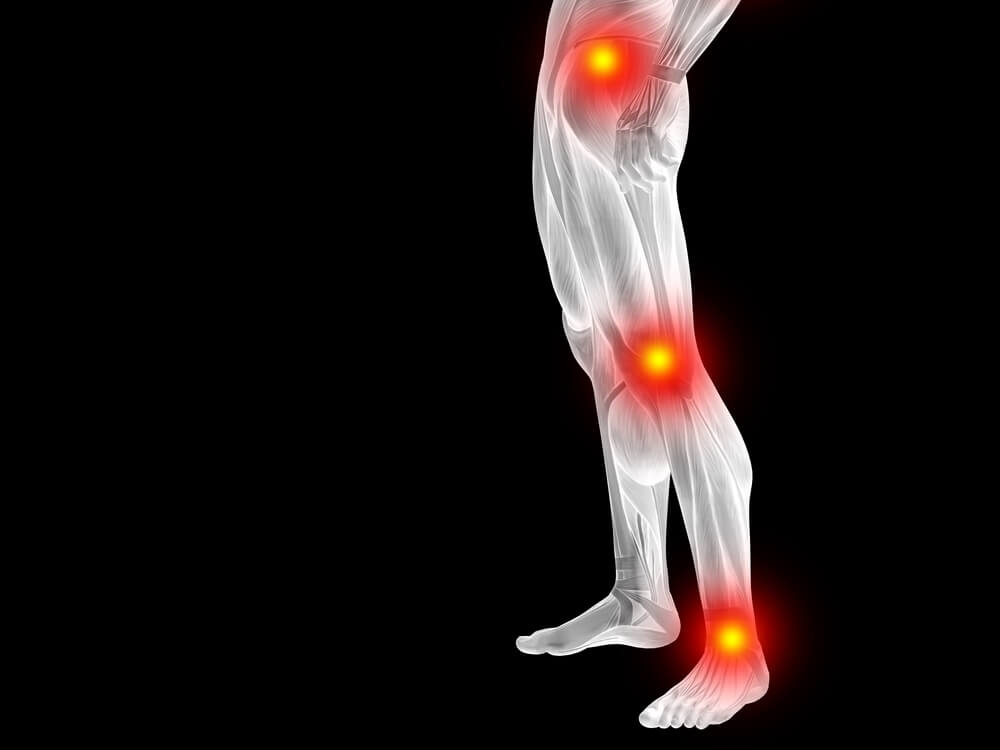
Sometimes my right shoulder does not cooperate and leads to workout-injuries. Raising my arm overhead is something I try to avoid. Reaching back to hold on to the bar for the back squat is out of the question.
And the embarrassing truth is that I don’t even have some wild training injury story to tell or some intense shoulder workout. I’m pretty sure that poor ergonomics when working on my laptop combined with repeatedly yanking Coda off of the coffee table are the source of the injury. Regardless of the cause of the injury, one thing is for certain. . . my training must be altered to give my shoulder time to heal and work on shoulder mobility.
When injury strikes, and on a long enough timeline it almost certainly will follow these tips to keep you training while giving your body the time it needs to repair.
Workout Injuries Tips…
#1 Test All Movements
There will be movements that you are certain will cause discomfort before even trying them.
If I know I’m in pain when I reach for the top shelf in my kitchen, I’m pretty damned sure that a push press is out of the question. But outside of the obvious, do not make assumptions. Instead, test the movement with little or no resistance and make an assessment.
For example, I would have guessed that pulling exercises would be a problem but strict chin ups do not bother my shoulder at all.
On the flip side, box jumps – with the arm swing that precedes the jump – are a no-go and something that I would not have initially guessed would cause discomfort.
To be certain if a movement can be done with injury you must test. And if you experience even the slightest amount of discomfort during the test, you must abandon the movement while the injury heals.
#2 Be Extra Diligent With Your Nutrition And Sleep
It goes without saying that solid nutrition and rest strategies should always be a part of your overall health and fitness regimen.
But we all slack from time to time… the cheat day that turns into the cheat weekend, a few nights of lost sleep and alcohol consumption because a long-lost college roommate calls, the never-ending temptation of Ben & Jerry’s Mint Chocolate Cookie ice cream.

Your body will normally bounce back just fine from these occasional indulgences. But when healing from an injury, your body’s resources are better spent on injury repair than nursing a hangover.
Turn off the television an hour earlier and get to bed. Have a second helping of spinach and forgo the pasta. Grill some chicken breasts and skip the deep fried chicken wings. Again, nutrition and recovery are always important. But for the swiftest recovery from injury, get your food intake and sleep schedule dialed in extra tight.
#3 Seek A Medical Opinion
This is one of those “do as I say, not as I do” kind of things. No, I haven’t been to the doctor for my shoulder.
Let’s just say that my current state of self-employment doesn’t come with the best health care plan. And as long as I continue to notice improvement with my shoulder (decrease in pain, increase in range of motion), don’t expect to see me in the waiting room.
But this doesn’t mean that you shouldn’t see a doctor. In fact, if you are injured you SHOULD see a doctor.
I have been to the doc for injuries in the past and have found that those that use “Sports” in the title of their practice (Sports Medicine, Sports Therapy) do their damnedest to keep you active. So if you are injured, be sure to seek a medical opinion and weigh all of your treatment options.
#4 Find The Opportunity In The Obstacle
Reaching back to grab the bar for a back squat makes me grimace in pain, but holding the bar for a front squat feels just fine. And it just so happens that I have neglected the front squat in my training over the past year or two.
Similarly, I’ve favored the kipping pull up over the strict version for quite some time. Well the kip doesn’t agree with the current state of my shoulder but I’ve been using the strict chin up for several weeks now and the shoulder press injury.
It is possible that an injury will force you to focus on a weakness. See this as a blessing, and enjoy finding the opportunity in the obstacle.
Injuries are always frustrating when they happen. But I don’t know anyone with any significant amount of training time under their belt who hasn’t had to deal with them. When injured be smart with your exercise selection, dial in your nutrition and sleep, seek a medical opinion, and be aware of training opportunities that you would not have considered without the injury.
How do you deal with an injury when it comes to training?
Or do you have an injury right now that you are dealing with?
Let me know in the comments below.
Old Author
-Vic
Latest posts by Vic Magary (see all)
- What’s the Healthiest Alcohol? - Apr 23, 2013
- Destination X—What’s The Exact Body You Want? - Mar 9, 2013
- How to Save Money while Eating Super Healthy - Mar 8, 2013










Man! Are you kidding me?! That sucks! Its my left, and from past sports crap..re-appearing because of over training (yes, everyone warned me) and caused some other issues because the other guys had to compensate for the injury. We’re one big bloody chain…
what am i doing? whining. guessing. self diagnosing, then finally resting. whining some more, resting. accepting reality, and now learning. I too dont have a village dr at the ready either.
I did test a few movements out, most were more warning signs even after resting. so ive accepted the $$ hit and will just get some tests done.
training wise, i have been about as intense as a slow walk. literally.
honestly, deadlifting and kettle bell swings feel ok. ai plan on basing my workouts around the dr visit. ill be seeing them this Tuesday…so soon enough, we’ll be back…slowly. just fyi- i cant do surgery shit for 6 -12 months if thats the case.
push ups, pull ups, or dips have been only a dream for the last few weeks. not sure about sand bags or the tire yet…
I honestly think its the old rotator or a ‘slap tear’ that i just made worse. its been around over a year now. and can remember when it happened during rugby. I just want to know whats been annoying me.
This is an awesome write, Vic! Ive done all these and can say they work.
Beyond just training, I found another opportunity..ive had time to start working on things like yoga and flexibility issues…and some other nutritional learning. Ive done an insane amount of reading and learning the last 8 weeks. I cant lie, i just decided to kinda take a couple months off and maintain once a week. Ive worked out my mind!
But im ready to get on with it and make it happen again!
Thanks again!!
-Mike.
PS; sorry about the novel, but u know how i do these…
Man, I love your novels. 🙂 You always add value to the GymJunkies with your comments. Thanks!
Vic,
This is just my opinion, but it would be a pretty nice addition to your website if you did a talk about stretching before/after workouts and exercises that strengthen rotator cuff or other joint areas (I know that doing this helps prevent injury and also helps improve the amount of weights a person can lift).
I think a lot of websites talk about lifting techniques and nutrition, but I sometimes have issues finding articles about serious stretching for flexibility and joint-strengthening exercises (wrists, knees, rotator cuff, etc).
Anyways, I hope your shoulder heals, and that you get back into your lifting. Good luck, and feel better!
-Max
Check out Eric Cressey’s blog for the info you seek:
http://ericcressey.com/
A few months ago I was at the batting cages and my shoulder wen’t out of socket for a moment, hurt like hell. So instead of stopping I tried swinging again and did the same thing. My shoulder pain usually only happens when I bench press and do dips. Every other exercise seems to be okay, but I can still feel a little pain afterwards. Since that happened I took it pretty easy, but I’m paranoid I will injure it again so I just make sure I have really good form, but I stay away from the barbell bench press.
Can’t you just find a way to electrify the table?
Awww, and hurt my pup? 😉
Long time lurker, first time poster here.
For the longest time I would train hard on the muscles I felt I wanted to improve on. Disregarding the whole system that is my body. I hated working my core, (I used to think that only meant crunches)therefore, I ended up with lot’s of lower back pain. So, being a dummy, I would take some time off completely to let it rest, do many many many bent over stretches and try to get it back to feeling better.
Finallly, one day I woke up and found the light, or better yet, Rusty’s fitnessblackbook.com where he talks about back pain. Basically, I needed to strengthen my core, especially those muscles surrouding my spine and STOP bending over and rounding the back.
Now as part of my warm up I try to get those muscles going and I like to do Planks, Birddogs, and Supermans. And guess what I have been back pain free for 3 months.
Thanks, Brett. I’m a big fan of Rusty and his blog. Keep that lower back strong!
Hey!!! You gave more confidence on readers that having difficulties in losing weight. Its there opinion if they want to try or not. I glad that I read your blog, it give more on losing my weights. Thanks!!
Exercise and a healthy diet are right for everyone. Thank you for following GymJunkies!
I have had numerous shoulder problems over the years…bursitis, arm falls asleep when over my head when lying down to name a couple. Through self diagnosis (I am a retired chiroprator) and self rehabilitation, I have found 2 problems that plague the regular weight lifter…a rounded shoulder (excessive internal rotation) and an elevated shoulder joint (head of the humerus sits high in the joint and lots of tenderness on your supraspinatos). Through exercises that focus on rear deltoids and the rhomboids, I have been able to correct quite a few of these problems. Combined with an anti-inflammatory and glucosamine supplement, I’ve had great success, even when working put through the pain, though that is best avoided when you can. A good test for an elevated humerus head is to do heavies while shoulder shrugging. If you feel relief from pain in your shoulder, this is a good indicator. And for the rounded shoulder, look in the mirror, though most guys tend to over develop their chest muscles at the expense of their back so this is quite common. Give it a try and give it some time…see what you think.
James,
Awesome info and thanks for your input. I too see many guys with rounded shoulder often times from doing too much bench and not enough back. As always I was taught there are always a couple things that help, such as identifying overactive muscles and underactive muscles. Also to strength and lengthen muscle accordingly. For example, if your head falls forward it’s probably due to overactive upper traps, levator scapulae or sternocleidomastoid and likely underactive deep cervical flexors.
I am going to have to try the heavy shoulder shrugs out though! I also take glucosamine and turmeric root for inflammation.
Terry